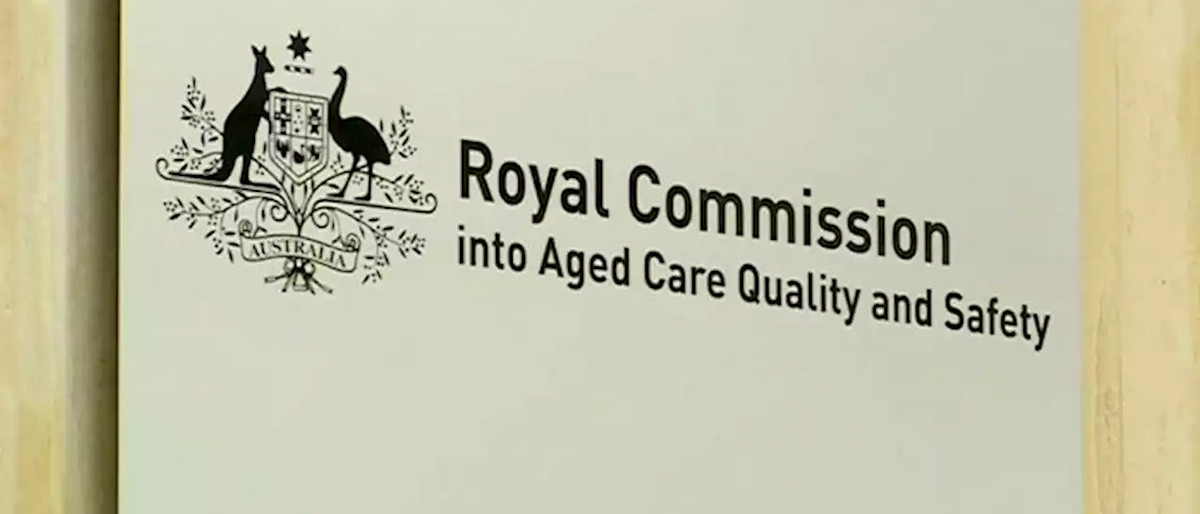The final report of the Aged Care Royal Commission has shone a light on some clear and critical issues within the industry which we must together amend and correct.
This marks a clarion call within the aged care industry. It is a time to acknowledge errors, oversights and negligence across many operations and facilities, big and small.
Perhaps most critically, it is now a time to face that which we’ve known and that which we’ve been blind to – and to treat every aspect with the seriousness it deserves.
Collectively, we need to enact change now to ensure that we move forward treating aged care residents with respect, dignity and care.
The Aged Care Royal Commission Report
Perhaps most importantly, we should acknowledge the Commission’s recommendations in regards to putting in right-spaced aged care, stronger governance & transparency, and improving workforce capability.
These are critical faults that were only further compromised and exposed during COVID-19 and will require a focused effort to correct in a meaningful and, hopefully, permanent way.
Amongst some of the more severe conclusions drawn in the Final Report, there are certain findings that we as an industry have been aware of for a long time – and My Care Path for one strongly advocates the following changes.
Failings during COVID-19
COVID-19 exposed flaws in many of our nation’s industries, and the aged care sector is no different. Flaws in the numbers of staff, cleaning benchmarks and training processes have been laid on the table for all to see. Even with vaccination on the horizon, we know that the industry needs to work harder to prepare for future crises, as well as to establish a unified voice, mission and understanding to present a singular front to the public to rebuild confidence within the sector.
While the Royal Commission’s findings in their interim report already set a scathing tone long before today, the industry should not see this as an attack. Instead, we need to view it as an encouragement to do things differently and better. The Commission has called for a fundamental overhaul of regulation and funding of Australian aged care and in the age of COVID-19, this has particular importance.
We must develop legislation and protocols around this matter to prevent future outbreaks to the extent that we have seen recently. My Care Path advocates for appropriate legislation around staffing levels and training to ensure the knowledge, support and equipment are in place to prevent future outbreaks to the extent that we have seen recently.
A fresh approach to staffing
As is recommended by the Council assisting the Royal Commission into Aged Care, minimum staffing should be legislated to ensure that all residents receive the care they need. Rather than a concrete number of staff, we endorse that minimum staffing levels are considered a starting minimum and these staffing levels should increase as the complexity of resident’s care needs change over time – a structured system by which this staffing measure is enforced across the board could be one constructive approach.
A Division 1 registered nurse should be on-site at all facilities 24 hours a day, and appropriate staffing of enrolled nurses would be an appropriate resourcing minimum. We also recommend upskilling of PCA nurses, and increased training across the board.
A consistent future
As part of our mission to rebuild trust, transparency and clear communication are key
Transparency within aged care starts with navigating the system and admission process, and there are already improvements to be made here.
For example: every provider presents their information in a different format, making it difficult for clients to compare – and every client’s situation and care needs are different. While the process will always be complex, as there are many variables, it needs to be transparent. If clients have a clear understanding of the process and choice, they will trust themselves to make good choices and trust providers to deliver on their promises.
While providers are mostly willing to give the client a breakdown of their fees prior to admission, the issue arises from the fact that the actual cost of accommodation and care can be confusing when comparing the numbers, including considerations such as Centrelink rules and pension entitlements.
There needs to be more transparency around these figures, in order for clients to have a proper understanding of the breakdown of costs and the implications it may have on their Centrelink entitlements. We often recommend our clients see an accredited aged care financial planner. This guarantees they have full disclosure regarding fees when they sign a permanent residential aged care contract.
We have the power to make positive changes
It needs to be acknowledged: our industry has the power to acknowledge mistakes and shortcoming and learn from them to better our care. We should remember the power we have to not only act responsibly, but to make changes that foster joy in the lives of residents and families.
One of the big changes we’ve seen over the years is a focus on improving the food available at aged care facilities. More effort is being put into food, which makes a big difference to residents – making sure that it’s not only nutritious, but delicious. Many facilities are consulting more with their residents and creating a conversation around food choices, with some even having food-specific resident committees to come up with new menus. It’s important for residents to have a say in this critical part of their aged care experience and enjoy meals in the same way they would at their own homes. Living environments within facilities and the incorporation of community groups into the fabric of facilities is another marked step forward.
On the administrative side, many facilities are becoming more transparent about what they offer and are encouraging feedback from residents. This is an important part of reform, making sure that residents are involved in decision-making processes and have a say in changes that will affect their day to day lives. COVID-19 has also seen facilities become more flexible with visitation and compassionate leave – something that we should maintain even after the current situation has alleviated. It’s critical to respond directly to client needs, especially in times like these where anxiety is rife.
The step forward
This is not the time for quick fixes or glossy PR initiatives. It is a time to implement serious and overdue policies, changes and structural overhauls to ensure we can earn back the respect of the Australian people. More importantly, we need to take this as a wake-up call that the industry needs to unify under collective standards that we know will dramatically improve care standards.
It is right, it is necessary, and it is time.
Related Posts
January 20, 2021
How minimum staffing levels will improve aged care
The Aged Care Royal Commission and COVID-19 have revealed some glaring gaps in the aged care system, a major one of which is the lack of consistency…
January 11, 2021
How My Care Path takes the stress out of aged care
Making decisions around aged care is emotional, stressful and confusing. This is the first time I have had to navigate the aged care system, and I…
December 21, 2020
Respite care: A practical solution over the holiday period?
Over the holiday period, some families may need to go away and leave an elderly person behind, or a carer may need to take a break. The options are…
November 4, 2020
Aged care in Australia: 7 myths busted
There are many myths and misconceptions within the aged care industry, which often make it difficult for people to access the right information for…




